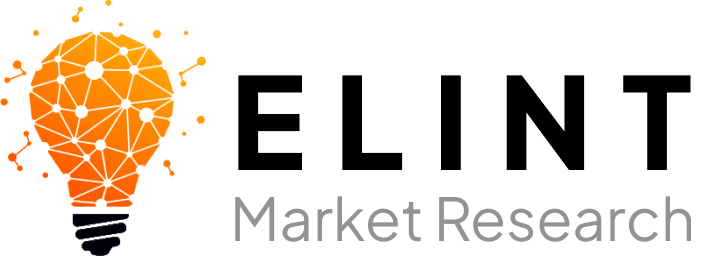DESCRIPTION
Marketing Fulfillment Market Global Size:
The expanding need for marketing fulfillment procurement intelligence services has increased over the past several years due to the growing international desire for trustworthy online and offline purchasing as well as the growth of e-vendors. Hence, as stated by a recent report from ELINT Market Research, this industry reached a substantial $91.8 billion market size in 2023, which is also predicted to grow at a CAGR of 7-8% annually to achieve $99.1–115.6 billion value between 2024 and 2026.
Additionally, several technological innovations in e-commerce fulfillment solutions, like incorporating blockchain technology and automation of the supply chain, continue to be the primary contributors. Henec, businesses that invest in supply chain data analytics will be able to take advantage of inventory control and trend forecasting, which will all add to the dynamic market of marketing fulfillment goods.
Market Definition:
The marketing fulfillment industry assists worldwide e-commerce businesses in efficiently managing their fulfillment operations like product marketing, commodities storing, order proceeding, packaging, and goods shipping. This way, organizations ensure the timely delivery of products to customers and increase their satisfaction. Thus, fulfillment service providers ensure their consumers about delivering complete data privacy and great customer service.
Marketing Fulfillment Procurement Market Drivers:
- Rising Need for Personalized Marketing Methods –
As demand for personalized marketing campaigns is rising among businesses, the marketing fulfillment services industry is also growing; since these methods assist consumers in customized marketing initiatives like print copies, online, and direct email.
- Demand to Offer Seamless Shopping Experience to Consumers –
Today’s e-commerce and retail businesses are majorly focusing on offering a seamless shopping experience to their customers across all channels such as in-store or offline and online. This demand caused the marketing fulfillment industry to rise to a massive level.
Marketing Fulfillment Market Challenges:
- Data Privacy Concerns –
At present online theft and data breach era, businesses are mainly concentrating on secured marketing fulfillment solutions, which is a major challenge for service providers.
- Fragmented Market –
Marketing fulfillment is a very fragmented sector, which comprises various stakeholders like storehouses, shipping transports, printers, and technology service suppliers. Hence, industry participants sometimes face supply chain and logistical complexities.
Marketing Fulfillment Market Opportunities:
- Environmental Awareness About Eco-Friendly Products –
As people are becoming aware of sustainable products and practices, retail businesses are also asking for eco-friendly solutions from service providers like sustainable packaging, printing materials carbon-impartial transporting options, etc.
- Integration of Smart Technologies –
Marketing fulfillment procurement intelligence companies are integrating some advanced technologies like ML, AI, and robotics into their solutions to automate multiple operations like managing inventory, forecasting deliveries, order handling, and more.
Marketing Fulfillment Market Segmentation:
- Diverse Sevice Types –
The foremost segmentation factor for the global marketing fulfillment sector is diverse service types including storehouses, product management, order proceedings, goods packaging, and transporting.
- Various End Use Industry Verticals –
Multiple industries including medicine, e-commerce, automobile, electronics, consumer goods, etc., are end-user verticals for the worldwide marketing fulfillment market. These sectors employ fulfillment solutions as per their distinct requirements.
Impactful Cost Components in the Marketing Fulfillment Market:
The significant and impactful cost component of the global marketing fulfillment market is labor costs, holding 45 to 52 percent shares of the total costs. This component can comprise prices for wages, employee gifts, regulatory rules, workforce efficiency, etc., which can greatly affect labor costs in various geographic areas.
Pricing Methods in the Marketing Fulfillment Market:
Marketing fulfillment procurement market intelligence companies determine the competitiveness and work efficiency of service providers with the help of pricing strategies. In the cost-plus pricing method, the service expenditure is determined by tacking on an additional percentage to the entire cost of providing the service. Moreover, a fixed price or transactional cost strategy allows service providers to charge preset payments for each transaction or service they have given to customers. Hence, both parties get predictability in pricing structure but they are also required to do risk assessment.
Cost-Saving Strategies in the Marketing Fulfillment Market:
Implementation of cost-saving strategies helps companies to improve their operational efficiency. With payment term optimization methods businesses can bargain their favorable payment conditions with vendors and lower financing costs. Further, the process standardization approach aids in facilitating fulfillment operations and stops monotonies and errors.
Moreover, with a performance-based pricing approach, service providers can link their expenditures to preset performance metrics or results. Lastly, supplier development initiatives help consumers to encourage long-term relations with market players.
KPIs in the Marketing Fulfillment Market:
Marketing fulfillment procurement market intelligence organizations use timeliness KPI to evaluate the speed of order proceeding, packaging, and delivery operations. This way, they can ensure punctual delivery to consumers. Further, accuracy KPI helps check the accuracy and trustworthiness of order processing and stock administration. Additionally, cost and productivity KPIs give assurance about the productivity and affordability features of fulfilling activities.
High and Medium Maturity Regions in the Marketing Fulfillment Market:
The global marketing fulfillment market comprises various maturity levels for diverse countries. The high-maturity countries include the West, East, and Gulf Coast of the U.S., the UK, France, Germany, Singapore, Hong Kong, China, Japan, Australia, South Africa, the UAE, Egypt, and Nigeria. Thus, companies functioning in these nations are adopting smooth fulfillment infrastructures and ecosystems. In distinction, medium market maturity nations comprise the U.S., Spain, Portugal, Poland, Morocco, Korea, Vietnam, India, Brazil, Argentina, Chile, and Mexico, which are operating in the market development phase and grabbing growth opportunities.
Engagement Strategies in the Marketing Fulfillment Market:
Elint’s procurement intelligence report exhibits emerging engagement strategies in the fulfillment market; the strategic partnerships method assists businesses link with specialized fulfillment providers and acquire streamlined and convenient fulfillment solutions to meet their marketing purposes. Additionally, agency-of-record methods allow connecting with diverse marketing channels, which helps in navigating the complexities of the market and optimizing fulfillment operations.
Contract Duration in the Marketing Fulfillment Market:
The average contract duration for the global marketing fulfillment market lasts for two to three years, which allows both consumers and service providers to collaborate on a stable foundation and foster long-term relations.
Leading Suppliers in the Marketing Fulfillment Market:
The top-tier brand names of fulfillment procurement market intelligence that are constantly offering customizable solutions spending to client needs include Bowline Supply Chain, Digital Planet, Parcelninja, iDeliver, Efinity, Avram Worldwide, Imperial Logistics, Wiptec, TAGG Logistics, a2b Fulfillment Inc., 3LINX, JM Field Marketing, CDS Global, Globegistics Inc., F4E Fulfillment, B2C Europe, DK Fulfillment Ltd, Aramex, Fetchr, Parzel, Sir Speedy, Ze zoo Fulfillment, Hellmann, Erlander’s Group, Salesupply, Onfulfillment, DPEX Worldwide, Courex, AIT Worldwide, Acommerce, Tifs, Kankai, ModusLink.

